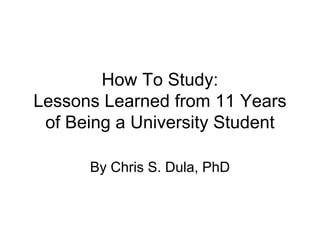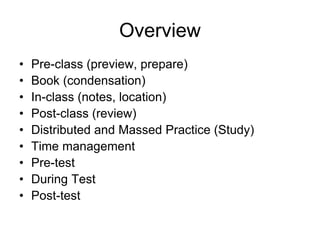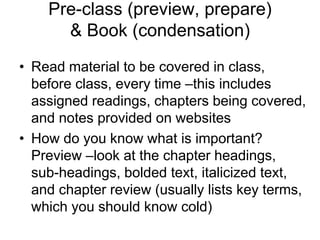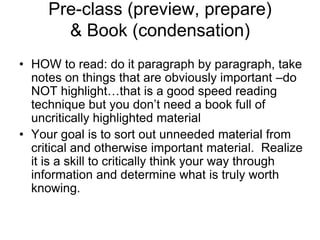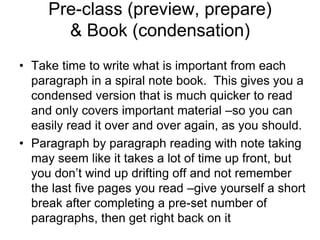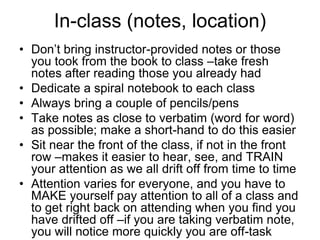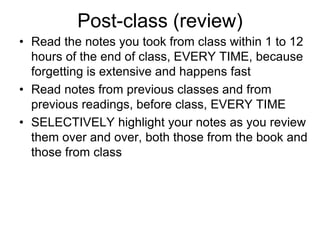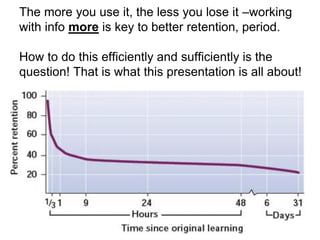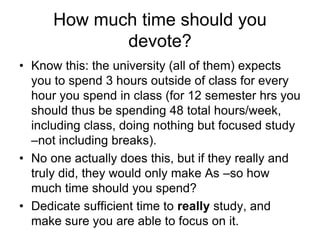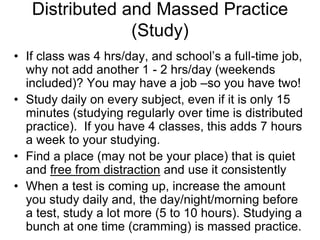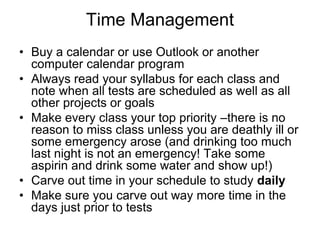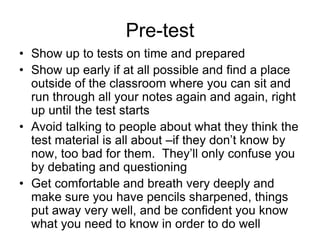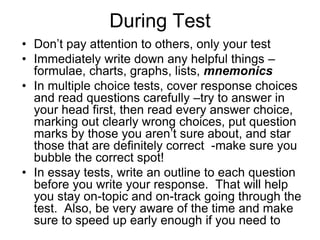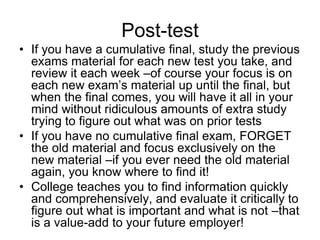This document provides study tips and lessons learned from 11 years as a university student. It recommends previewing assigned readings before class to identify what's important, taking concise notes, reviewing notes after class within 12 hours, and studying in both distributed and massed practice ways. It also emphasizes time management, sitting at the front of the class, using testing strategies like outlining essay answers, and reviewing old material for cumulative exams. The overall goal is to read and study efficiently in order to better retain information.
